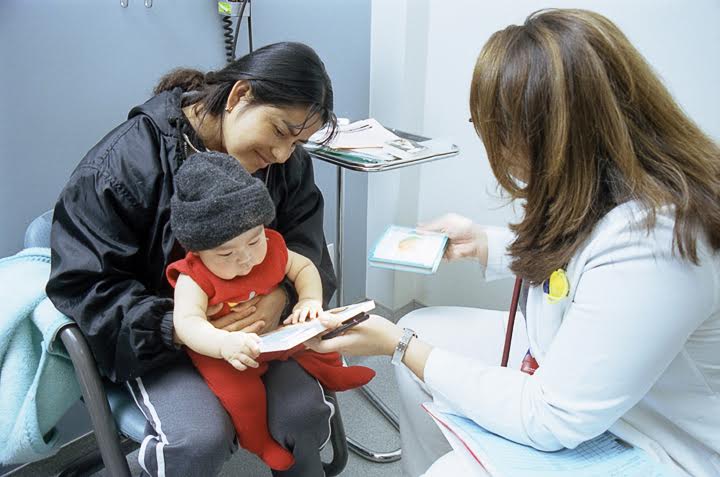
Photo courtesy of First 5 LA.
Efforts are underway in figuring out how to best provide care for children who have experienced trauma in their lives, with regional expert organizations looking at one of Long Beach’s very own health care providers for guidance.
Experts from First 5 LA, the California Community Foundation, the California Endowment and the Ralph M. Parsons Foundation are among a group of organizations that recently announced a collective effort to advance a comprehensive approach to trauma-informed care in the county, according to statement provided to the Post.
“Childhood trauma is a serious health concern affecting many children and families,” stated First 5 LA Executive Director Kim Belshé. “A young child living through a difficult home situation may be unable to express their fears and feelings clearly. We must speak for them. By using a trauma-informed approach in our work with County residents, we can help minimize the impact of trauma and give families the opportunity to reverse its harmful impact on our youngest children.”
Trauma includes a range of adverse experiences that may be exposed to a child in their formative years, according to the statement. Violence at home or in the community, physical and emotional abuse, or a parent struggling with substance abuse or mental health issues can contribute to trauma.
Exposure to trauma as a child can increase the risk of diseases and negative social issues as an adult, including anxiety, depression and chronic health conditions such as asthma, heart disease and diabetes, read the statement.
“We look forward to learning from the experts currently engaged in this work,” California Endowment CEO Dr. Robert K. Ross stated. “We want to learn from those that are getting it right and implement a system that will build stronger children and families.”
One of those experts is Dr. Elisa Nicholas, CEO of The Children’s Clinic, Serving Children & Their Families, in Long Beach.
Through various types of screenings—such as trauma, maternal depression, extreme poverty and food and housing insecurities—Nicholas and her staff figure out what kind of issues patients have and what services can best help address those issues.
If staff identify a domestic violence case, they have lawyers that can help with restraining orders. If staff identify issues of food insecurity within a family, The Children’s Clinic has nearly two dozen employees trained to enroll patients into CalFresh.
According to Nicholas, through these screenings, TCC found that many families have food insecurities, with about 30 percent of them running out of food before the end of the month.
TCC currently serves about 5,000 patients under the age of four, plus their families, in the greater Long Beach area and has 10 sites in Long Beach, with one in Bellflower.
Nicholas said the key to maximizing opportunities for patients, in terms of finding help, is all in the approach.
“The trauma-informed care we’re really utilizing throughout the organization is really listening and asking open-ended questions,” Nicholas said.
Sometimes patients do not initially disclose information, but staff try to establish relationships with families to make them more comfortable and able to talk about issues more easily.
Nicholas said a few years ago, during TCC’s initial training with a consultant from the National Council of Behavioral Health on trauma-informed care, she had all her staff trained—even finance, billing and front office personnel.
That included educating staff on what trauma is, its adversity and the type of mental and physical health effects they have on a child, as well as what that means later on as an adult.
“We also had to help our staff acknowledge that they may have had these traumas in their childhood and they never really dealt with it so that was an important piece of it,” Nicholas said. “For our staff, we tried to be supportive and recognize that sometimes those you’re serving may have the same issues as your own staff.”
TCC is currently working on opening a mobile clinic that will travel to local parks and serve the homeless community. Nicholas said an advisory task force has already been created to help with the process.
The mobile clinic, coupled with plans to expand screenings and service providers, is the next step in providing overlapping services to achieve TCC’s ultimate goal of prevention.
“What we want to do is prevent things from happening to the kids and really build the strength and resiliency of families,” Nicholas said.
Mayor Robert Garcia called TCC a haven for the community.
“There are thousands of hardworking families in our community — mothers and fathers working two and three jobs to help make ends meet,” said Garcia in an email. “We all have to be aware of how this not only creates stress and hardship for parents, but that it also affects their children. [TCC’s] approach to childhood trauma is something we hope to see replicated for families everywhere.”
The collective effort to advance a trauma-informed care approach within Los Angeles County will include a two-part process, according to the statement. During the initial step, a workgroup will take on an “exhaustive environmental scan” to collect data and learn from “best-practice initiatives” already in place in the county, state and nation.
The workgroup aims to release its findings and county-focused action plan by next year, the statement read. The effort follows a unique trauma-informed care convention earlier this year that included dozens of leading government, nonprofit and funding organizations discussing the proven impact of trauma on children and the need for a shared vision and plan for action around the issue in Los Angeles.


